“It won’t be until 2020 until a state government can have a state plan for raising industrial hemp in their state,” said James Averill, deputy director for MDARD.

A new report suggests that there should be no legal limit on how much THC can be in your body to consider someone impaired.
Former Governor Rick Snyder created a six-member Impaired Driving Safety Commission.
The board is made up of members of diverse backgrounds including reps from Michigan State Police, a medical marijuana patient, and doctors.
In its findings, the commission is suggesting to lawmakers not to set a measurable limit of THC.
“It’s not like alcohol at all,” Bruce Leach said.
Leach is a local criminal defense lawyer and practices law significantly on matters with marijuana.
Leach says he supports the commission’s decision.
“There is no direct correlation, and no science behind a set number of nanograms equals a certain amount impairment,” Leach said.
The commission found regular users respond differently than occasional users.
“There is a discrepancy of active THC and the long time frame for the metabolite to be in someone’s system. It is very difficult to tell what their level of impairment or intoxication may have been. The real test is how they were driving,” Leach said.
Michigan has a zero-tolerance drugged driving law.
The commission wanted to learn to see if active THC was the reason behind impairment.
Leach says the problem is THC can stay in your body for an extended period.
“Many hours or many days or weeks after someone actually ingested the product,” Leach said.
Studies show there can be behavioral effects when someone ingests cannabis.
The report shows the number of positive tests for cannabinoids in crash-involved drivers has more than doubled over a five-year time frame.
Leach says people need to consume responsibly.
“Me personally as well as everyone I know that I represent everybody wants the safest possible roads,” Leach said.
The report did also look at other states that legalized recreational and medical marihuana.
• Colorado: 5 ng/ml
• Montana: 5 ng/ml
• Nevada: 2 ng/ml
• Ohio: 2 ng/ml
• Pennsylvania: 1 ng/ml
• Washington: 5 ng/ml
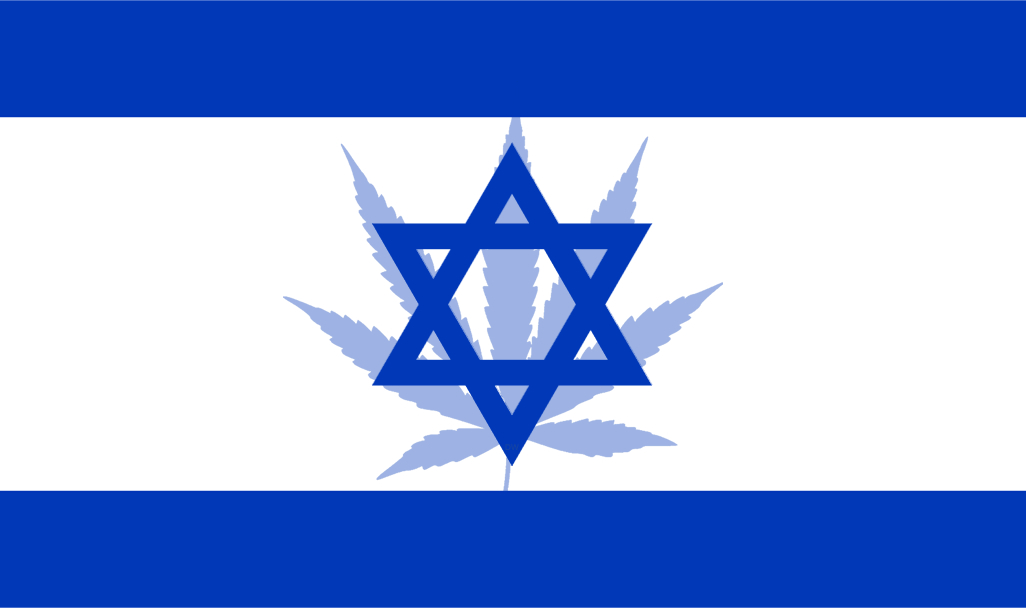
The plan which went into effect at midnight on Monday, use and possession of marijuana in small amounts in personal homes is not an offense.
Possession in public of amounts for personal use will result in a fine of about $275 for a first time offense and double for the second offense. A third offense within seven years will trigger a criminal investigation, or loss of driver’s or gun license.
Personal use is defined by the country’ Anti-Drug Authority as about 15 grams, though the reform legislation does not name a specific amount. Those with permission to possess cannabis for medical use must be able to present their license to police if confronted in public.
The plan was adopted in 2017 by Knesset after the recommendations of a panel set up by Public Security Minister Gilad Erdan. The reform legislation is temporary and will last three years, at which point the Knesset can decide to make it permanent.
Israel had already increased the number of doctors who can write prescriptions for medical cannabis, removed limits on the number of marijuana growers, made cannabis available at public pharmacies, and made it possible to receive medical cannabis with just a doctor’s prescription.
The new marijuana reform does not apply to soldiers, minors, or those with a criminal record. Minors will, however, be directed to rehabilitation programs as opposed to entering the criminal justice system.
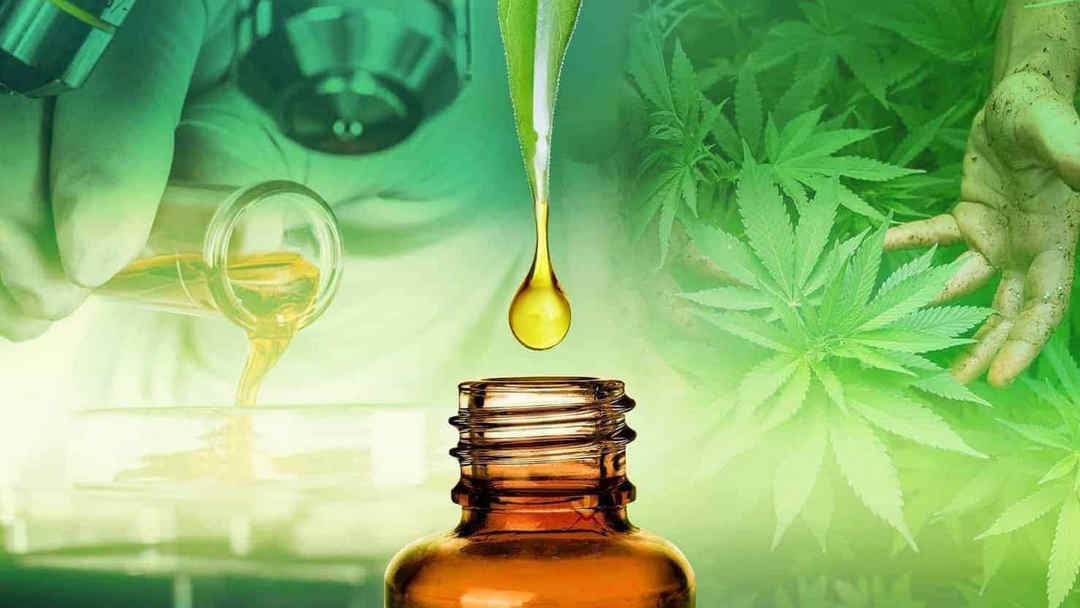
Michigan officials are informing citizens that food and drinks with CBD oil aren’t legal yet. CBD is the new thing in the health alternative market.
After Proposal 1 passed in Michigan which legalized adult-use marijuana and industrial hemp as well as the 2018 U.S. Farm Bill which legalized hemp nationwide there has been a rise of products made with CBD.
“The whole scheme is fascinating. It doesn’t make the subject matter into an illegality,” said Michael Komorn, a lawyer and president of the Michigan Medical Marijuana Association. “It’s a not a crime, it’s a regulatory fine. You won’t get arrested, but it may prevent you from getting a license to do that in the future.”
Michigan’s Department of Agriculture and Rural Development is waiting on the federal government to write its hemp program regulations before it comes up with its own rule set — and that won’t happen until 2020.
“It won’t be until 2020 until a state government can have a state plan for raising industrial hemp in their state,” said James Averill, deputy director for MDARD.
However, a mechanism in the 2014 Farm Bill that allows farmers to grow industrial hemp by working with universities or with state departments of agriculture — and Averill said Michigan is considering a way to help farmers plant hemp sooner rather than later.
“For putting seed in the ground this year — we have to work off the 2014 Farm Bill and that is a conversation that we’re continuing to have with the administration,” Averill said.
Previously, U.S. Drug Enforcement Administration requirements made the state’s direct involvement to authorize hemp farmers difficult. The 2018 Farm Bill changed that, Averill said.
Michigan Offers Guidance on CBD and Industrial Hemp
March 29, 2019 – The Bureau of Marijuana Regulation (BMR) and the Michigan Dept of Agriculture & Rural Development (MDARD) issued joint guidance today regarding CBD (cannabidiol) and industrial hemp.
From the Bureau of Marijuana Regulation:
From the Michigan Department of Agriculture and Rural Development:
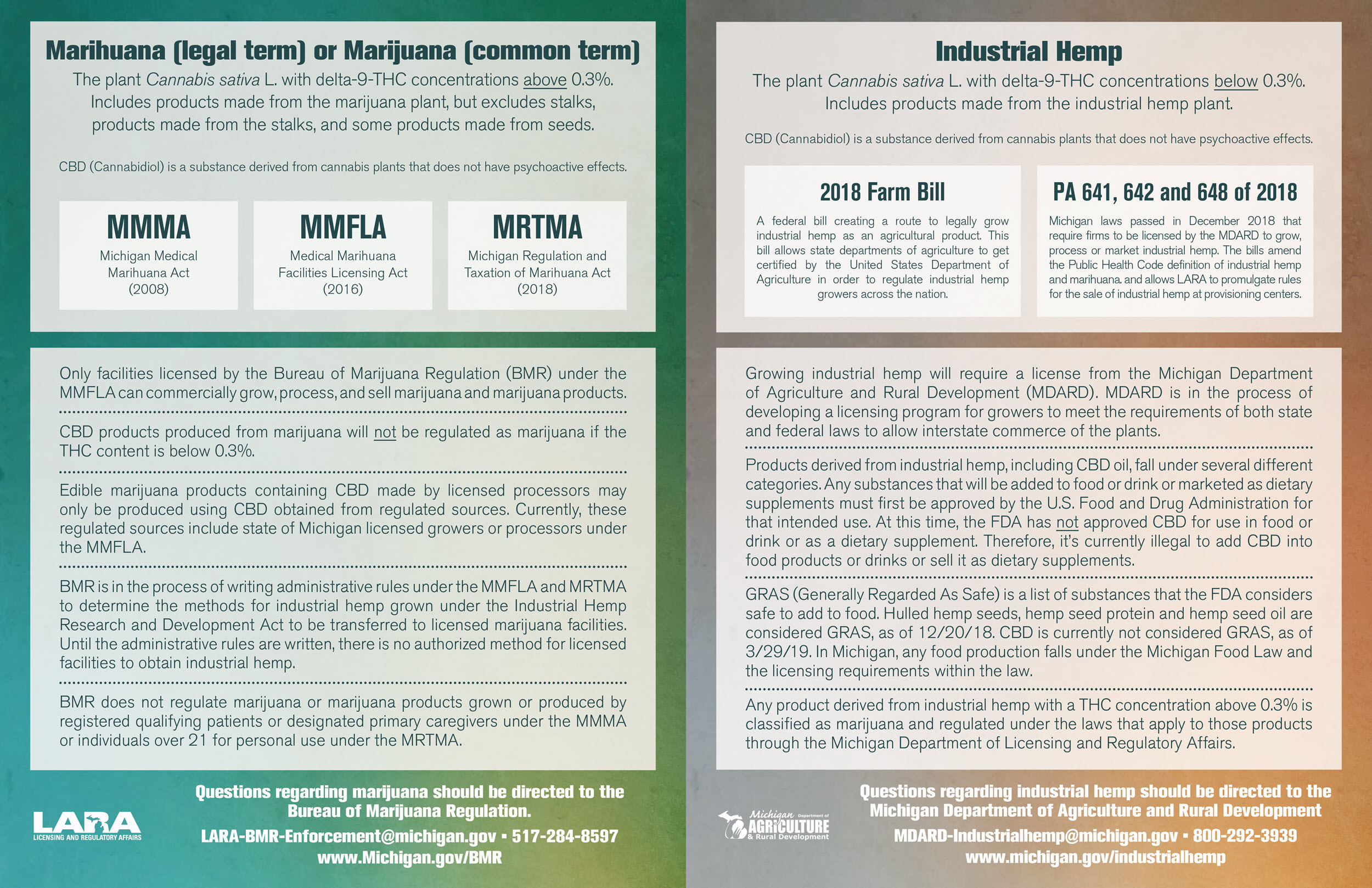
Definitions

Michigan officials are informing citizens that food and drinks with CBD oil aren’t legal yet. CBD is the new thing in the health alternative market.
After Proposal 1 passed in Michigan which legalized adult-use marijuana and industrial hemp as well as the 2018 U.S. Farm Bill which legalized hemp nationwide there has been a rise of products made with CBD.
“The whole scheme is fascinating. It doesn’t make the subject matter into an illegality,” said Michael Komorn, a lawyer and president of the Michigan Medical Marijuana Association. “It’s a not a crime, it’s a regulatory fine. You won’t get arrested, but it may prevent you from getting a license to do that in the future.”
Michigan’s Department of Agriculture and Rural Development is waiting on the federal government to write its hemp program regulations before it comes up with its own rule set — and that won’t happen until 2020.
“It won’t be until 2020 until a state government can have a state plan for raising industrial hemp in their state,” said James Averill, deputy director for MDARD.
However, a mechanism in the 2014 Farm Bill that allows farmers to grow industrial hemp by working with universities or with state departments of agriculture — and Averill said Michigan is considering a way to help farmers plant hemp sooner rather than later.
“For putting seed in the ground this year — we have to work off the 2014 Farm Bill and that is a conversation that we’re continuing to have with the administration,” Averill said.
Previously, U.S. Drug Enforcement Administration requirements made the state’s direct involvement to authorize hemp farmers difficult. The 2018 Farm Bill changed that, Averill said.
Michigan Offers Guidance on CBD and Industrial Hemp
March 29, 2019 – The Bureau of Marijuana Regulation (BMR) and the Michigan Dept of Agriculture & Rural Development (MDARD) issued joint guidance today regarding CBD (cannabidiol) and industrial hemp.
From the Bureau of Marijuana Regulation:
From the Michigan Department of Agriculture and Rural Development:

Definitions
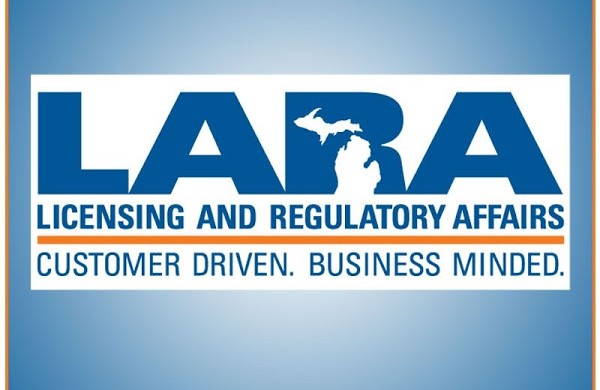
At a regularly scheduled meeting of the Medical Marihuana Licensing Board (Board), convened in Lansing, Michigan, the following resolution was adopted.
WHEREAS:
The Board is established within the Department of Licensing and Regulatory Affairs (Department) under the Medical Marihuana Facilities Licensing Act, 2016 PA 281 (Act), with the general responsibility to implement the Act; and The Board’s duties include granting or denying each application for a state operating license, providing for the levy and collection of fines for a violation of the Act or rules and providing oversight of marijuana facilities through the Board’s inspectors,
agents, and auditors for the purpose of conducting investigations into the operation of marijuana facilities as the Board considers necessary and proper to ensure compliance with the Act and rules and to protect the overall safety, security and integrity of the operation of marijuana facilities; and
The Board’s powers include the authority to investigate alleged violations of the Act or rules, take appropriate disciplinary action against a licensee, and take disciplinary action as the Board considers appropriate to prevent practices that violate the Act or rules, and take any other reasonable or appropriate action to enforce the Act or rules; and
THEREFORE:
IT IS RESOLVED that the Board will not take disciplinary action against an
applicant in the following circumstances:
• For an Applicant temporarily operating:
o For the time period ending March 31,2019:
• The applicant temporarily operates a proposed marihuana facility
that would otherwise require a license if either of the following
apply:
• The applicant’s proposed facility is within a municipality that
adopted an ordinance before December 15, 2017 but is
pending adoption of an ordinance under the Act, or
• The applicant’s proposed facility is within a municipality that
has adopted an ordinance before December 15, 2017.
• The applicant notifies the Department within 1 business day of
becoming aware of any adverse reaction to a marijuana product
sold or transferred, and
• For purposes of this resolution only, the applicant applied for a
license no later than February 15, 2018.
o An applicant that does not comply with this resolution shall cease and
desist operation and may be subject to penalties and sanctions, and
o An applicant that is temporarily operating is not guaranteed a license.
IT IS FURTHER RESOLVED that the Board will not take disciplinary action
against a licensee in the following circumstances:
• For a licensed Provisioning Center:
o For the time period ending March 31,2019:
• The licensee obtains marijuana products from a registered primary
caregiver (caregiver), and
• The licensee obtains patient consent on a form provided by the
Department prior to selling any marijuana products that have not
been tested in full compliance with the law and administrative rules,
and
• The licensee enters all inventory into the statewide monitoring
system immediately upon receipt from a caregiver, and
• The licensee, before any sale or transfer, must verify, and confirm
with government issued photo identification, with the statewide
monitoring system that a patient or primary caregiver holds a valid
registry identification card, and
• The licensee enters all sales in the statewide monitoring system,
and
• The licensee determines sales will not exceed daily purchasing
limits, and
• The licensee shall notify the Department within 1 business day of
becoming aware of any adverse reaction to a marijuana product
sold or transferred.
o For the time period beginning April 1, 2019 and until such time as the
Department publishes an advisory bulletin notifying all licensees that the
effect of this resolution has been terminated:
• The licensee obtains marijuana products only from a licensed
grower or licensed processor, and
• The licensee obtains patient consent on a form provided by the
Department prior to selling any marijuana products obtained from a
caregiver prior to April 1, 2019 that have not been tested in full
compliance with the law and administrative rules, and
• The licensee enters all inventory into the statewide monitoring
system immediately upon receipt, and
• The licensee, before any sale or transfer, must verify, and confirm
with government issued photo identification, with the statewide
monitoring system that a patient or primary caregiver holds a valid
registry identification card, and
• The licensee enters all sales in the statewide monitoring system,
and
• The licensee determines sales will not exceed daily purchasing
limits, and
• The licensee notifies the Department within 1 business day of
becoming aware of any adverse reaction to a marijuana product
sold or transferred.
• For a licensed Grower or licensed Processor:
o Until such time as the Department publishes an advisory bulletin notifying
all licensees that the effect of this resolution has been terminated:
• The licensee obtains marijuana products from caregivers, and
• The licensee enters all inventory into the statewide monitoring
system immediately upon receipt, and
• The licensee only transfers marijuana products that have been
tested in full compliance with the law and administrative rules, and
• The licensee tags or packages all inventory that has been identified
in the statewide monitoring system, and
• The licensee transfers marijuana products by means of a secured
transporter, except where exempted under the Act, and
• The licensee notifies the Department within 1 business day of
becoming aware of any adverse reaction to a marijuana product
sold or transferred.
See the Document – LARA 190321 Product_Access_for_Patients_640352_7
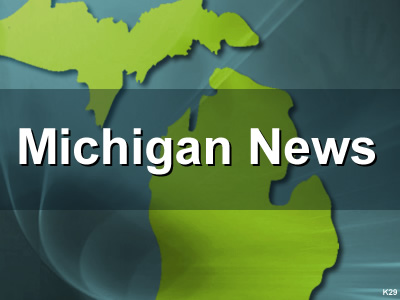
Amid concerns about minority businesses being left out and general frustration with the pace at which Michigan is moving on both the medical and recreational marijuana fronts, a group of organizations with marijuana business interests is preparing legislation they hope will make significant changes in how the market will operate.
Their sweeping proposal — which will face a tough climb in the Legislature because some changes would require a super-majority vote — would make the “gifting” of marijuana illegal; fundamentally change the caregiver system that has been in place since 2008 when voters legalized marijuana for medical use; reimpose the 3 percent excise tax on medical marijuana that ended on March 6; allow medical marijuana dispensaries to begin immediately selling marijuana for adult recreational use; require people who grow their own marijuana to register any heavy equipment they use with their local community, and allow unlicensed dispensaries to continue to operate through the end of the year.
“We’re not trying to circumvent how recreational will operate,” said Eric Foster, a consultant with Banks & Company in Southfield, which has a number of marijuana business clients. “We’re just trying to accelerate the market and address some of the concerns from local government.”
Besides Banks & Company, the groups involved in developing the bills are the Florida-based Minorities for Medical Marijuana; Cannas Capital, a Muskegon insurance and investment agency that specializes in cannabis businesses; Michigan Economic Stimulus Fund, a Kalamazoo-based cannabis consulting firm and the Lake Newaygo County chapter of the NAACP.
Applicants for marijuana business licenses have been frustrated by the pace and inconsistency in action taken by the state Medical Marijuana Licensing Board. Since the state started awarding licenses last summer, only 121 licenses have been approved. Of those license approvals, 105 — 31 growers, 11 processors, 54 dispensaries, four testing labs and 5 transporters — have paid their state regulatory assessments and actually been awarded licenses. The state has denied 41 license applications, as well as 125 applications seeking preliminary approval.
Minority groups have especially been worried that they’ll be left out of the lucrative market. The state doesn’t keep statistics on the demographics of people who have been granted or denied licenses, but many Detroit-based marijuana businesses have been denied licenses.
The organizations have one potential sponsor in the legislature and is looking for others.
Rep. Ronnie Peterson, D-Ypsilanti, has met with the group and is interested in sponsoring some aspects of the proposal, but said there are other areas that need to be addressed too that aren’t included in the initial plan.
“How do the communities benefit from these businesses beyond the taxes? And we still have no legislation dealing with banking and community reinvestment programs,” he said, referring to the fact that the marijuana business is almost all done in cash, because the federal government still considers marijuana an illegal substance and banks don’t want to risk their license by accepting proceeds from pot sales.
Sen. Jeff Irwin, D-Ann Arbor, was involved in developing and campaigning for the November ballot proposal that voters approved, legalizing marijuana for adult recreational use. He doesn’t think the legislation has much of a chance in the Legislature. First, several aspects would need super-majority votes from ¾ of both the House and Senate because the bills would change voter-approved proposals, including getting rid of the current caregiver system from the 2008 medical marijuana ballot proposal and eliminating the “gifting” services that have popped up since the legal weed proposal passed last year.
And second, he said, such sweeping changes are premature.
“The citizens just overwhelming passed Proposal 1,” Irwin said. “I think we have an obligation to the citizens to let it work and see how it works before we start talking about changing it.”
He also questions the motives of those pushing the legislation.
“There is a certain group of deep-pocketed people and people from out of state who are already invested in the cannabis industry who want the Legislature to build a little walled garden so that they can make a lot of money off of Michigan consumers,” he said. “Anytime you have the Legislature trying to rope off an industry for a small group of people, I find that very dangerous.”
Some lawmakers tried to change the marijuana legalization law after the election, by outlawing home-grown marijuana, but the measure never came close to having enough support and never got a vote.
Medical marijuana caregivers would go away
The biggest change would be scrapping the caregiver system, which was created after the 2008 vote to legalize medical marijuana and allows each registered caregiver to grow up to 72 plant for six medical marijuana cardholders. The proposal would get rid of that category in favor of less expensive transitional licenses for smaller marijuana grow operations, and potentially open the market up to more minority business owners.
In Michigan, there are more than nearly 293,000 medical marijuana cardholders and 41,440 registered caregivers. The caregivers have been selling their excess marijuana to dispensaries, but after March 31, the caregivers will only be able to sell their overages to licensed growers and processors.
Peterson said it would be beneficial to allow caregivers to more easily transition to the licensed market without having the same regulatory expenses – a $6,000 state application fee, a $10,000 regulatory assessment and the ability to show $250,000 in assets. “These small shops should be able to compete with some type of entry level license because having to show $250,000 or a half a million in assets isn’t fair.”
Irwin said, however, that the November ballot proposal already created another class of license for “micro businesses,” that don’t carry the same large expenses.
This proposal would require a ¾ vote because it changes the 2008 ballot proposal on medical marijuana.
The proposed legislation would also allow unlicensed dispensaries that are awaiting a license from the state to continue to operate through the end of 2019. But those dispensaries, which have faced a variety of deadlines to get a license or shut down, are now facing a hard March 31 deadline.
3 percent excise tax would be revived
Foster said the 3 percent excise tax on medical marijuana should be reinstated as an incentive to communities to allow legal medical weed businesses in their towns because a portion of those revenues would come back to the communities. The language to remove the tax was included in the Legislature’s 2016 laws that regulated and taxed medical marijuana and stipulated that if recreational marijuana was legalized, the excise tax on medical marijuana would disappear. Medical marijuana is still subject to the state’s 6 percent sales tax. When recreational marijuana becomes commercially available for sale early next year, it will carry a 10 percent excise tax, along with the 6 percent sales tax.
Irwin said it will be a hard sell to convince lawmakers to reimpose a tax on those using medical marijuana.
‘Gifting’ of marijuana would be eliminated
In an attempt to tamp down the black market for marijuana, the proposed package would make “gifting” of marijuana illegal. Under the November ballot proposal, individuals can grow up to 12 plants for their personal use. They can give that product away, but not sell it. As a result, “gifting” services, which skirt the letter of the law, have cropped up across Michigan in which a person can pay $55 or more for a muffin and some juice or a T-shirt and get a gram of marijuana or a vape cartridge as a gift.
This also will need a ¾ vote in the Legislature because it changes a provision of the November ballot proposal.
Recreational marijuana sales would start immediately
The state has until December to come up with the rules and regulations that will govern the recreational marijuana market and then begin to accept applications for licenses for marijuana businesses.
But under the legislation that’s being drafted, medical marijuana dispensaries would be able to immediately begin selling recreational marijuana to people 21 and older, even before the regulations are developed by the state, Foster said.
That could pose problems for the state. In other states where recreational marijuana is legal, there are different standards and dosages for medical and recreational marijuana. Those standards haven’t been developed yet for the recreational market in Michigan.
Citing safety concerns, Peterson said he’s in favor of another provision in the proposed package that would require home growers to register any heavy equipment they use to grow marijuana with their local community.
“Particularly in urban cities, you could have five or six people growing in one block,” he said. “I’m very concerned about that.”
Foster said the bills are expected to be drafted and introduced in the next couple of weeks once sponsors have been identified.
The state Department of Licensing and Regulatory Affairs is taking a wait and see attitude on the proposals.
“We appreciate and evaluate input offered from all stakeholders,” said LARA spokesman David Harns. “If the proposal is introduced into the legislative system, we’ll take an in-depth look into it at that time.”
Kathleen Gray covers the marijuana industry for the Detroit Free Press. Contact her: 313-223-4430, kgray99@freepress.com or on Twitter @michpoligal.
——-
Let the circle of greed and control begin to close to completion.